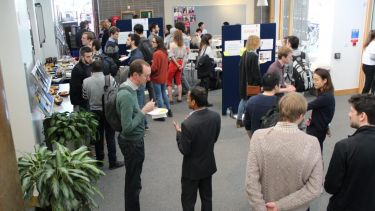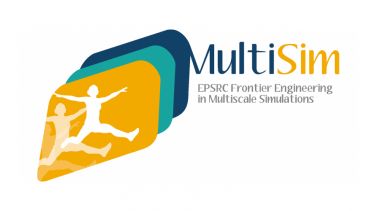On Friday, 29th March, a bright sunny Spring day in ∫˘¬´”∞“µ, researchers from across disciplines in science and engineering with an interest in multiscale modelling gathered at the ICOSS Conference Centre. This event attracted over 40 participants from ∫˘¬´”∞“µ and universities across the UK, including Oxford, Anglia Ruskin, Nottingham, Manchester, and Leeds.
Dr Pinaki Bhattacharya welcomed the participants to the event and Prof Claudia Mazz√Ý introduced the MultiSim project. The MultiSim project investigates the musculoskeletal system using multiscale models linking whole body movement, through multi-body models, structural models of the bones down to tissue and cell models to understand bone remodelling. She then announced the continuation of MultiSim through a newly awarded EPSRC Frontier Engineering Progression Grant.
Throughout the afternoon, the participants heard from different speakers about the use of multiscale models their different applications:
- Joshua Elliot, University of Manchester, described its use in quantum mechanical and atomistic simulations of graphene membranes and polymer aggregates;
- Pinaki Bhattacharya, University of ∫˘¬´”∞“µ, explained his approach of scale separation related to instrumentation scope and resolution for musculoskeletal biomechanics;
- Stephen Payne, University of Oxford, described his approach to predicting how blood flow through the multiscale cerebrovascular network changes during ischaemic stroke and
- Colin Freeman, University of ∫˘¬´”∞“µ described his multiscale approach to modelling molecules and materials in applications related to micro-scaled devices and magnetoelastic systems.
- Throughout the event, participants could network with each other over lunch and coffee. The participants arranged into mixed groups of disciplines and institutions and exchanged their approaches and the challenges they faced in employing multiscale models in their disciplines. The groups shared the results of these discussions during the closing session.
Dr Pinaki Bhattacharya who arranged and hosted this workshop said “This workshop highlights the tremendous diversity of applications of multiscale modelling. Yet, even across this diversity of themes, several common challenges (e.g. experimental validation) and opportunities (e.g. high-performance computing) emerged. To me, this suggests the need for more such interdisciplinary exchanges. I think most of our participants today will agree.”



